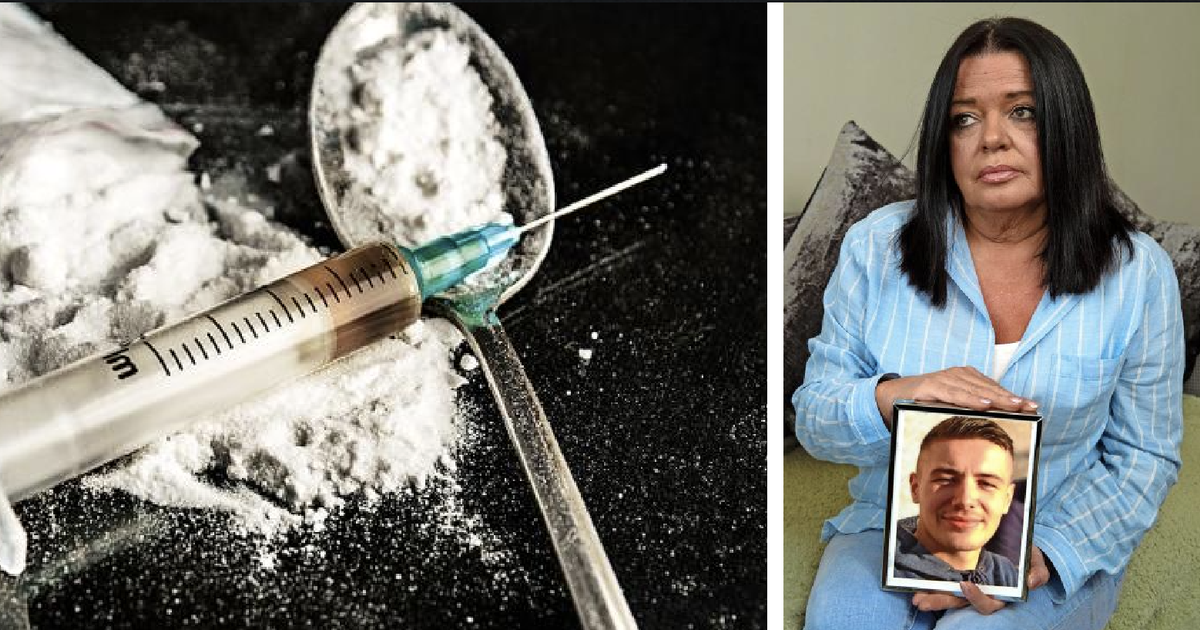The Sunday Mail can reveal the shockingly lenient punishments being handed out despite 1065 fatalities last year – the highest of any European country.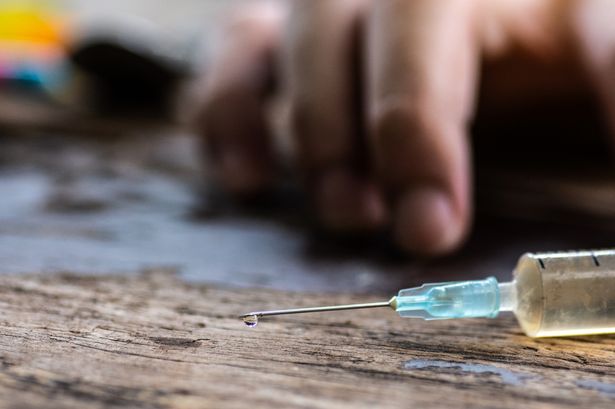 Heroin dealers hit with paltry fines in Scottish courts(Image: Getty Images)
Heroin dealers hit with paltry fines in Scottish courts(Image: Getty Images)
Heroin dealers are receiving average court fine of just £499 despite Scotland’s drug deaths epidemic, we can reveal.
The shockingly lenient punishments are being handed out despite 1065 fatalities last year – the highest of any European country.
Meanwhile less than a third of those convicted of dealing offences receive a jail sentence according to official figures.
Bereaved families along with politicians and campaigners have reacted furiously and demanded custodial sentences for dealers.
Linda McVean, whose son Frankie died of an overdose, has demanded prison for heroin dealers while Lib Dem MSP Jamie Greene branded the puny penalties “pocket change”.
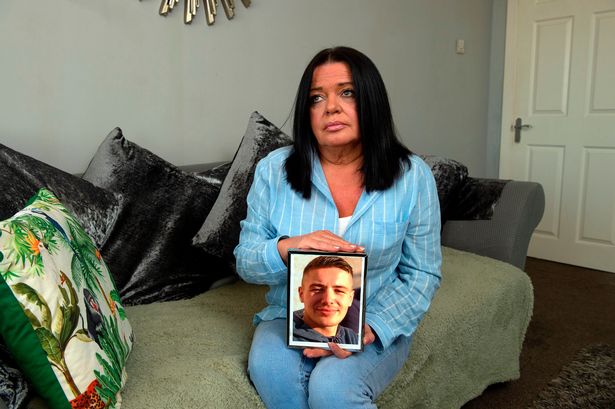 Linda McVean who lost her son Frankie to an overdose in 2023(Image: Garry F McHarg Daily Record)
Linda McVean who lost her son Frankie to an overdose in 2023(Image: Garry F McHarg Daily Record)
Linda, 56, lost her son Frankie after he dabbling with the drugs while staying at a homeless hostel. She later bought illegal street valium herself to show how pushers were operating with impunity.
Linda said: “I will never get over Frankie’s death, it will stay with me forever and it makes me sick to think these dealers are being allowed to sell these deadly drugs more or less openly.
“Drug addicts need to be treated with compassion but the dealers are selling death and misery and should face jail.
“If you walk through the city centre of Glasgow you can see deals being carried out in front of your eyes on street corners and it is unacceptable.
“This is an industry that makes millions of pounds for the people at the top – meanwhile thousands of users who end up hooked are dying.
“How do you possibly think that a fine of less than £500 is going to put anyone off, it is ridiculous, they can make that back in a day.
“The police and the courts and the government all have a responsibility to make clear that there will be consequences for drug dealing and that it will result in a custodial sentence.”
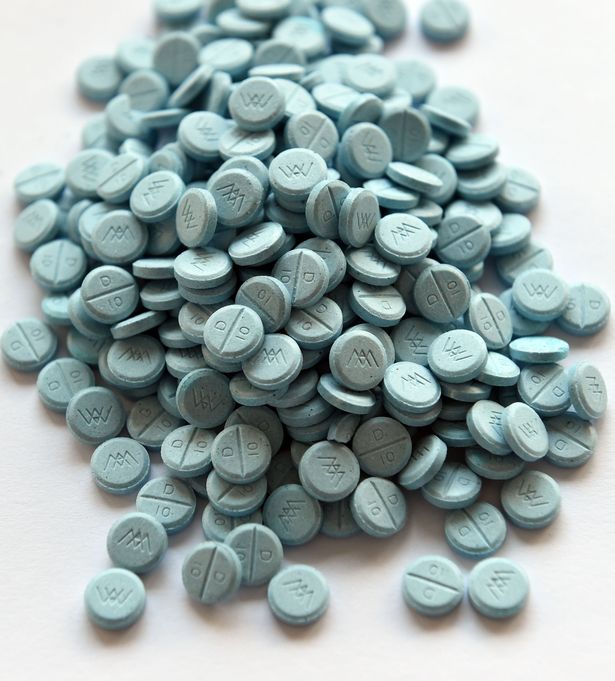 Fake Valium tablets, typical of those flooding Scottish streets(Image: Daily Record)
Fake Valium tablets, typical of those flooding Scottish streets(Image: Daily Record)
Linda paid £10 on Glasgow’s Argyle Street for 28 street valium pills months after Frankie died in May 2023.
She then made a report to Police Scotland, telling detectives she was disgusted the trade in drugs was allowed to go on in full view of shoppers.
When Linda bought the drugs close to Glasgow’s Central Station, she told the dealer: “These are the same pills that killed my son. You should be ashamed of yourself.”
Linda, from Penilee, Glasgow, added: “At every level this trade is being allowed to continue despite people dying every day.
“It is ruining thousands of lives, there are families behind every one of these drug deaths who will never get over the grief of losing their child or brother or sister, it is utterly tragic.
“The people responsible for selling drugs need to take responsibility for their actions but that is never going to happen if they are more or less walking free from court even after a conviction.”
Frankie, 30, died while staying at the Queens Park Hotel in Glasgow, where several lives have been claimed by drugs.
He was not an addict when he entered the homeless accommodation but dabbled with pills believed to have been sold by low level dealers. His was one of a cluster of deaths at the hotel and Glasgow’s Rennie Mackintosh Station Hotel.
 MSP Jamie Greene.(Image: Ken Jack/Getty Images.)
MSP Jamie Greene.(Image: Ken Jack/Getty Images.)
Liberal Democrat MSP Greene said: “Communities are only too familiar with the damage that drug dealers can do to vulnerable people.
“Given the vast profits and immense misery that heroin can generate, it seems strange that the punishment is a monetary fine of a sum that major players in the drugs business will treat as pocket change.
“Not only that but the punishments for different drugs feel totally arbitrary. The law acts like there’s little difference in the harm caused by drugs like heroin and the harm caused by something as common as cannabis.”
The average penalty for possessing heroin with intent to supply was just £499 in 2022-23 – similar to the typical fine for dealing cannabis of £485 and £503 for ecstasy. For cocaine dealing the figure was £719.
Opioids like heroin are responsible for up to 80 per cent of the nation’s overdose deaths, with 1065 suspected drugs deaths in Scotland last year.
Drugs campaigner Annemarie Ward, of charity Faces and Voices of Recovery UK, branded the average fines for dealing as the “effective decriminalisation” of illicit substances.
She said: “When dealers for huge criminal gangs who are making millions, arguably billions of pounds in Scotland are getting fined 500 quid, that’s effectively decriminalisation.
“This push and the language we have around decriminalisation, as taking a ‘public health approach’ and a ‘compassionate approach’, is rhetoric and posturing and it’s a farce.”
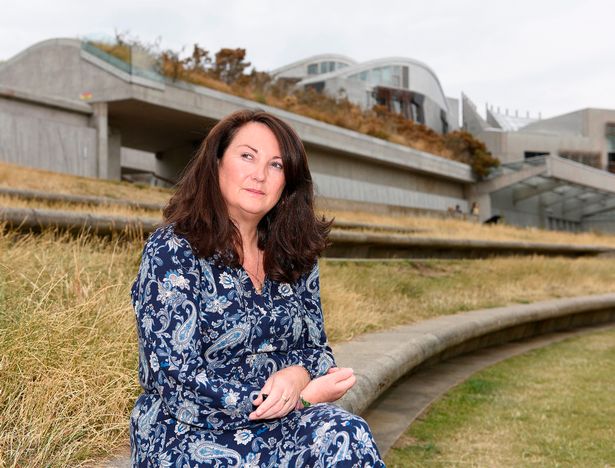 Annemarie Ward, Favor UK CEO(Image: Daily Record)
Annemarie Ward, Favor UK CEO(Image: Daily Record)
Ward, who says Scotland’s focus on harm reduction measures like Glasgow’s safe injecting facility has come at the expense of drugs rehabilitation and prevention, added: “Perhaps a new government in 2026 will tackle this with more balance.”
The Scottish Government has stated it wants drug possession to no longer be a criminal offence, although this would require Westminster to change the law.
Drug dealing would continue to be a crime under its proposals.
Convicted drug pushers can face jail, a community sentence or a financial penalty, or a combination under the Scottish justice system.
Some 1489 Scots were successfully prosecuted for drugs possession with intent to supply as their main offence in 2022-23, the latest year for which data is available.
 Join the Daily Record WhatsApp community!
Join the Daily Record WhatsApp community!
Get the latest news sent straight to your messages by joining our WhatsApp community today.
You’ll receive daily updates on breaking news as well as the top headlines across Scotland.
No one will be able to see who is signed up and no one can send messages except the Daily Record team.
All you have to do is click here if you’re on mobile, select ‘Join Community’ and you’re in!
If you’re on a desktop, simply scan the QR code above with your phone and click ‘Join Community’.
We also treat our community members to special offers, promotions, and adverts from us and our partners. If you don’t like our community, you can check out any time you like.
To leave our community click on the name at the top of your screen and choose ‘exit group’.
If you’re curious, you can read our Privacy Notice.
Data shows the rate of dealers being locked up has fallen from 54 per cent in 2013-14 to 29 per cent in the most recent year – or around 400 criminals.
Around 800 of cases (54 per cent) end in a community sentence instead, up from 37 per cent a decade ago.
And in more than 200 (17 per cent) of dealing cases – including for supplying dangerous Class A drugs like heroin – a fine is the main penalty.
In recent weeks, we’ve highlighted the rise of synthetic opioids called nitazenes being cut into street heroin. One superstrong substance, dubbed ‘pyro’, has already been linked to dozens of heroin deaths this year.
It’s raised fears that after a slight improvement in the rate of deaths, Scotland’s drugs epidemic – still the worst in Europe – could spiral again.
Last week, one recovering drug user told how dealers get off “scot free” even when a contaminated batch of heroin causes a spate of deaths.
The dad in his 30s, from Glasgow, said: “It’s going completely under the radar.
“It’s incredibly common across the whole UK for one place to get a strong batch then a bunch of folk die, the dealers go into hiding for a bit but no one ever knows because generally families don’t want to talk about it… when things have calmed down the cycle repeats.”
The Scottish Government said it “takes the issue of drug dealing very seriously” and that it is “determined to tackle drug harms”.
A spokesman added: “Sentencing in individual cases is a matter for the independent courts, taking into account all the facts and circumstances before them.”
